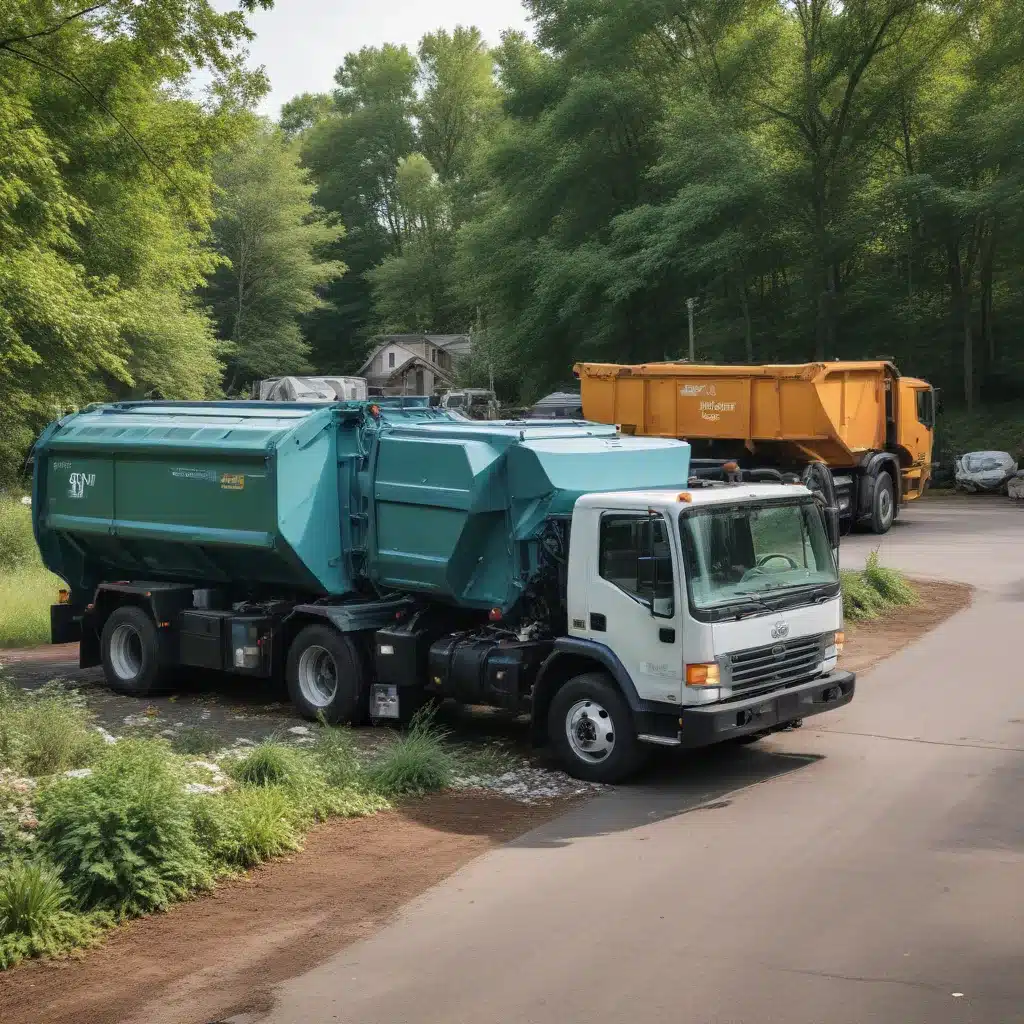
The Pressing Need for Innovative Waste Management Solutions
Rapid urbanization, population growth, and economic development have led to a significant increase in waste generation worldwide. According to the latest data, global municipal solid waste production reached 2.01 billion tonnes in 2016, and this figure is expected to rise to 3.4 billion tonnes by 2050 (Kaza et al., 2018). Unfortunately, only 33% of solid waste is properly managed, with the remaining waste often ending up in illegal dumpsites or uncontrolled landfills (Kaza et al., 2018). Improper waste disposal poses serious environmental and health risks, including groundwater contamination, land degradation, increased cancer incidence, child mortality, and congenital disabilities (Triassi et al., 2015).
In the past, waste management practices were more rudimentary, with small groups collecting garbage from the streets and depositing it in designated areas. However, the advent of artificial intelligence (AI) and the Internet of Things (IoT) is transforming the waste management industry, driving it towards sustainability and profitability.
Leveraging AI for Intelligent Waste Management
AI is a rapidly advancing technology that is gaining popularity in various industries, including waste management (Abdallah et al., 2020). The incorporation of AI and robotics in the design and operation of urban waste treatment plants can revolutionize solid waste management, leading to increased operational efficiency and more sustainable practices (Goutam Mukherjee et al., 2021; Yigitcanlar and Cugurullo, 2020).
Several developed countries, including Austria, Germany, New Zealand, the USA, the UK, Japan, Singapore, Switzerland, South Korea, and Canada, have already begun to adopt AI technologies to maximize resource utilization, efficiency, and recycling opportunities throughout the solid waste management cycle (Soni et al., 2019).
AI-Powered Computer Vision for Waste Sorting and Monitoring
AI-powered computer vision can be used for waste sorting and monitoring at recycling facilities. AI systems can identify and sort different types of waste materials, such as paper, plastic, metal, and organic waste, improving the efficiency and accuracy of the recycling process. Additionally, cameras equipped with computer vision can monitor public areas to detect illegal dumping activities, enabling city authorities to take timely action and reduce the incidence of improper waste disposal.
IoT Sensors for Real-Time Data and Insights
IoT sensors can be integrated into waste management systems to provide real-time data and insights. Sensors installed in waste bins can monitor fill levels and send alerts when bins are almost full, optimizing the collection schedule and ensuring that bins are emptied before they overflow. Sensors can also monitor environmental parameters such as temperature and odor levels, helping to manage waste-related issues like odor control and pest infestations.
AI Algorithms for Route Optimization
AI algorithms can optimize waste collection routes for efficiency and cost-effectiveness. Dynamic routing allows trucks to be directed to the fullest bins first, reducing unnecessary trips and saving fuel. Predictive analytics can analyze historical data to predict waste generation patterns and optimize routes based on expected waste volumes, ensuring that resources are allocated efficiently and reducing operational costs.
Autonomous Vehicles for Waste Collection
Autonomous vehicles can revolutionize waste collection by automating the process. Self-driving trucks can be deployed for waste collection, reducing the need for human drivers and increasing operational efficiency. These trucks can navigate pre-determined routes, avoiding traffic and other obstacles. Drones equipped with AI can also be used to monitor large areas for waste management issues, such as illegal dumping sites or areas with high littering, providing real-time data to city authorities.
Integrating AI and IoT for Smarter Waste Management
AI-based waste management systems can be integrated into the broader smart city infrastructure, combining data from waste management sensors with data from other urban systems (traffic, energy, etc.) to create a holistic view of the city’s operations. This integration can further enhance the efficiency and sustainability of urban management.
The benefits of leveraging AI and IoT in waste management include:
- Increased Efficiency: Automated and optimized processes reduce the need for manual labor and minimize human error.
- Cost Savings: Efficient route planning and reduced operational costs lead to significant savings for city authorities.
- Environmental Impact: Better waste sorting and recycling, coupled with optimized collection routes, reduce the carbon footprint of waste management operations.
- Public Health: Improved waste management reduces litter, illegal dumping, and pest infestations, contributing to a cleaner and healthier urban environment.
Challenges and Limitations
While the benefits of AI-powered waste management are clear, there are also some challenges and limitations to consider:
- Initial Investment: Implementing AI and IoT technologies requires substantial initial investment.
- Data Privacy: The use of cameras and sensors raises concerns about data privacy and security.
- Technical Issues: Maintaining and troubleshooting advanced technologies can be challenging, requiring specialized skills.
Conclusion: Embracing the Future of Waste Management
The future of waste management lies in embracing the power of AI and turning visionary ideas into practical, impactful solutions. By leveraging AI-powered technologies, cities can achieve more efficient, cost-effective, and sustainable waste management, transforming urban environments into cleaner and more livable spaces. As AI and IoT continue to evolve, the waste management industry must stay at the forefront of innovation to address the pressing challenges of waste generation and environmental preservation.
The Joint Action for Water blog is committed to sharing knowledge and best practices in the water and sanitation sector, including the innovative use of technology. To learn more about how AI and IoT are revolutionizing waste management, please visit https://jointactionforwater.org/.

